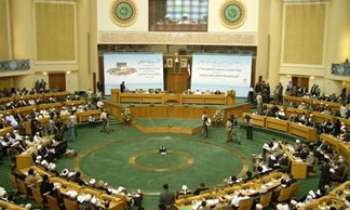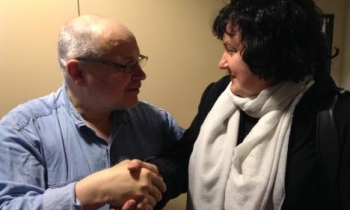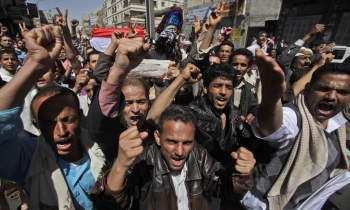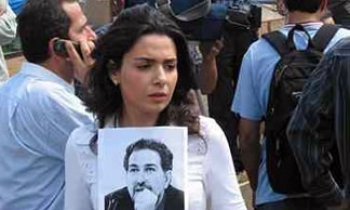TORONTO -- Cartoons depicting the Prophet Mohammed as a terrorist are deeply offensive, but so is the violent reaction to the drawings from Islamic extremists, Canadian Muslims said yesterday.
"The protests in the Middle East have proven that the cartoonist was right," said Tarek Fatah, a director of the Muslim Canadian Congress.
"It's falling straight into that trap of being depicted as a violent people and proving the point that, yes, we are."
The uproar has also sparked debate about the provocative nature of editorial cartooning and the limits of free speech in democratic countries.
While quick to defend freedom of expression, Canadian Muslims said the cartoons are reminiscent of the anti-Semitic depictions of Jews common in European periodicals before the Second World War.
"Now it is the Muslim community that has taken up their place," Fatah said.
The sensitivities involved were reflected in editorials in two of Canada's main daily newspapers yesterday.
An unsigned editorial in the Globe and Mail argued free-speech concerns must take priority over fears of giving offence.
"For dialogue and debate to flourish, citizens must be allowed the maximum freedom to say what is on their minds, even if it is provocative, insulting, inflammatory, or, yes, blasphemous," it said.
The Globe did not run the cartoons.
"We have legitimate concerns that we not unnecessarily offend any group or community," said Patrick Martin, comment editor at the Globe. "We don't see the necessity of doing this in this case."
Haroon Siddiqui, the Toronto Star's editorial page editor emeritus, said invoking free speech was a "disingenuous" attempt to disguise Muslim-baiting and anti-Islamic sentiments.
There is a "sacred secular principle" of promoting respect among various faiths," Siddiqui wrote yesterday. "Thinking people and responsible public institutions should err on the side of advancing mutual understanding, not fanning more conflicts."
Raheel Raza, the Toronto author of a book called Their Jihad Is Not My Jihad, said the cartoons, one of which shows Mohammed wearing a bomb-shaped turban, served no political or social purpose.
"All that it's doing is inciting hatred," Raza said.
The Internet publication eFrank has posted 12 of the cartoons on its website as part of an article decrying censorship.









